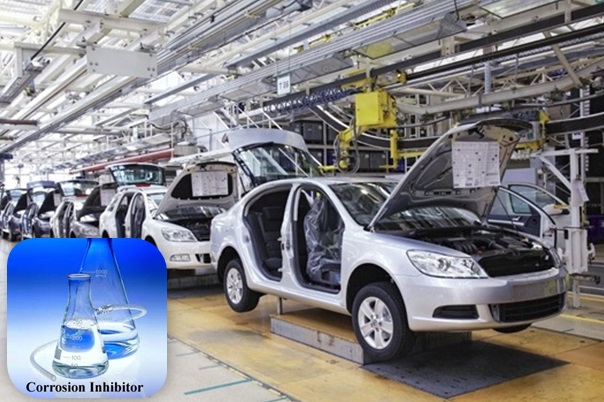Corrosion Inhibitor - Anodic, Cathodic, Mixed, VCI Corrosion Inhibitors
Corrosion Inhibitor is essentially a chemical compound that can decrease rate of corrosion of a metal that is in full exposure to nature. For example, it can be added to a chemical stream to reduce chances of corrosion. There are four main types of corrosion-inhibitors as mentioned here:
This type of inhibitor helps by forming a protective oxide film on the surface of a metal. This in turns initiates anodic shift thus reducing the effects of corrosion.
This type of inhibitor has an ability to slow down cathodic reactions and limit corrosion.
This type of inhibitor forms a thin film to reduce cathodic and anodic reactions.
- Volatile Corrosion-inhibitor(VCI):
This uses a process of volatilization by transporting compounds in a close environment to site of corrosion.
It is able to absorb inhibitor molecule on any metal surface and form a protective film around the metal in order to do so. There are several corrosion-inhibitor available and process of selecting one is not an easy task. There are special factors that need to be taken into consideration like if it is NACE certified and other factors as described in this article.

What is Corrosion-Inhibitor?
The main purpose is to prevent corrosion, however the effectiveness depends on several factors. Main factors are the fluid composition, flow and percentage of water. The way it works is by forming a coat around the metal so that this layer prevents direct contact of environmental elements with the metal.
It is possible to deal with the issue of corrosion in many different ways. One method is chrome plating, although this is a permanent solution. The other solution is making use of corrosion inhibitor which is essentially an additive to a liquid substances that surround a metal. Such types of inhibitors are commonly found and can be a spray with some form of lubricant or can even be a penetrating oil.
It is important to consider several factors when selecting a Corrosion inhibitor as per the list below:
- Type of material to be protected.
- Method in which it is possible to apply.
- Thickness of material and type of protection you need.
- Storage conditions and shipping conditions as well.
- The type of the product being oil or water based.
Significance of Corrosion-inhibitor
Iron is vulnerable to corrosion as is any other metal that contains an Iron like steel. Other metals like aluminum, copper, etc have a thin oxygen coating and hence are not so vulnerable.
Corrosion of iron and other metal can be a serious issue and compromises the safety as well. Potential effects of corrosion are listed below:
- It can cause a bridge to fall.
- Disrupt normal functioning of a vehicle and airplane.
- Can bust gas pipes and boilers.
- Damage machinery.
- Cause untold damage to an oil field (that is most vulnerable to the effects of corrosion).
Oilfield-Corrosion
Oilfields are more vulnerable to corrosion since the gas and oil often comes in contact with water. There are also acid gases and oxygen as contaminants, increasing the potential corrosion of metal pipes and equipment. Hence it is necessary for oilfields take necessary precaution to prevent corrosion.
When it comes to oil fields there are three main types of corrosion inhibitor formulations like oil soluble, oil soluble & water dispensable, water dispensable. Corrosion-inhibitor needs to be effective in several conditions per the list here:
- Gas & water
- Gas, Oil & water
- Gas & oil
- Only oil (without gas and water)
- Oil & water (without gas)